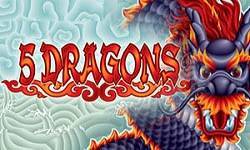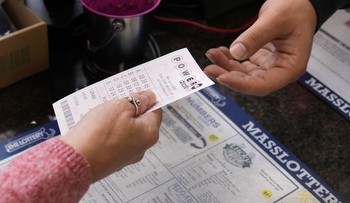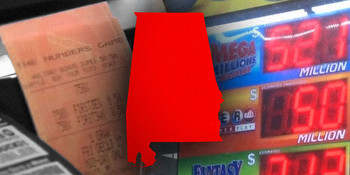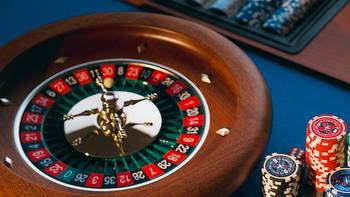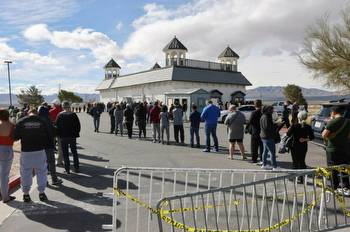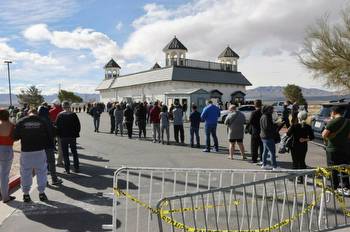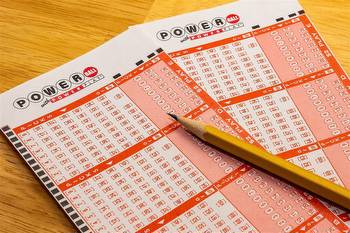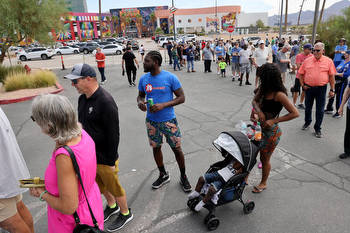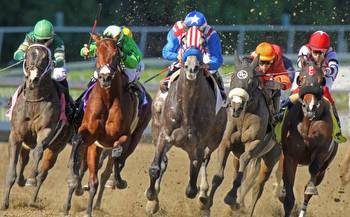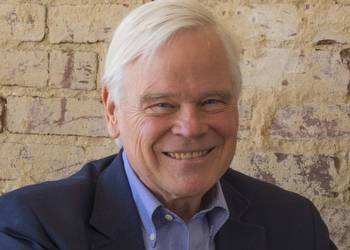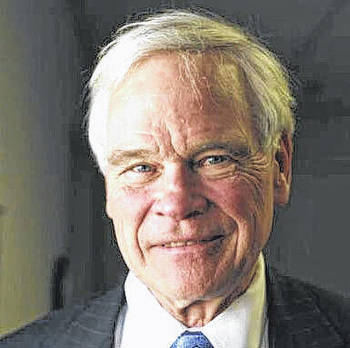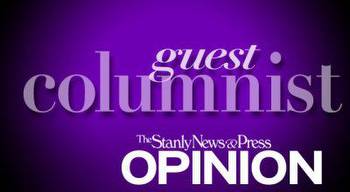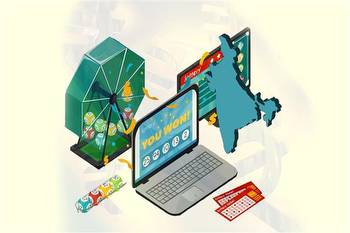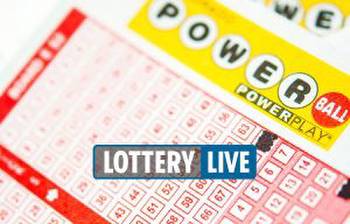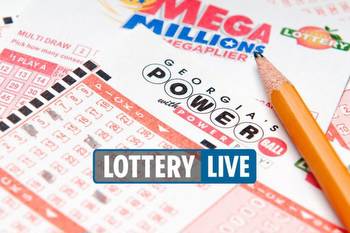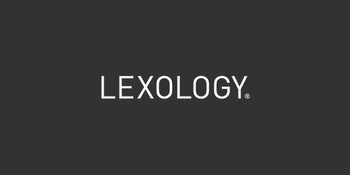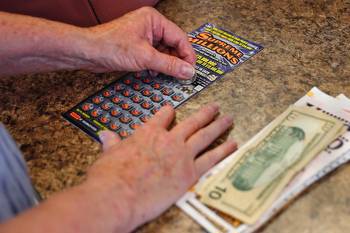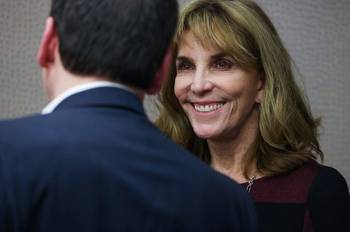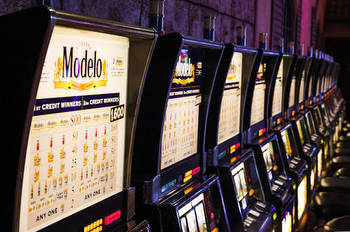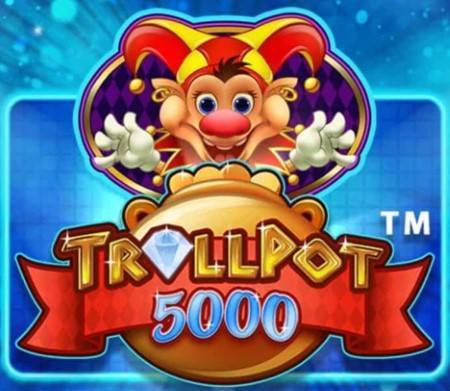The lottery is popular, but it’s still a bad idea
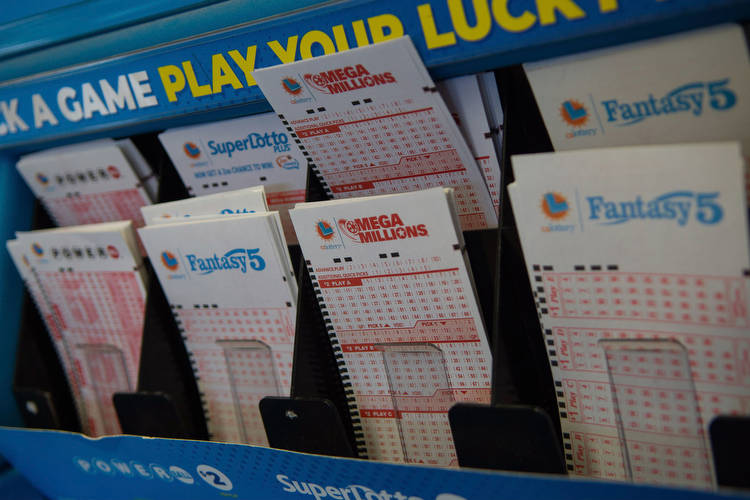
State-run and multistate lotteries have never been a good idea, even if the long lines in Primm last week demonstrate their popularity.
For many lawmakers, it’s tempting to wonder just how much revenue Nevada is missing out on by prohibiting state-run lotteries — which is a part of the reason the Legislature recently moved forward on repealing the state’s constitutional prohibition on such games when it passed AJR5.
Advocates of bringing games such as Powerball to the Silver State sell the idea by describing lottery revenue as a nontax alternative to more politically unpalatable options such as property tax hikes, the creation of an income tax or further increasing sales taxes.
Indeed, the “lottery instead of a tax” argument has been a successful sales pitch in much of the rest of the nation. All but five states currently have a state-run lottery or are part of a multistate jackpot with most of the holdouts being states that are largely averse to legalized gambling in general — Nevada being the obvious exception in that crowd.
Most reasonable people draw the conclusion that Nevada’s prohibition boils down to the power of the casino industry’s lobbying efforts. And to be fair, most reasonable people wouldn’t be wrong.
When she testified against AJR5 in the last legislative session, for example, Nevada Resort Association President Virginia Valentine argued the lottery could hurt state tax collections and services that are funded by the state's casinos by diverting consumers to lotto sellers. Indeed, examples of the industry’s protectionist arguments are almost too numerous to count.
However, there’s another reason Nevada has a constitutional provision banning games such as Powerball: State-run lotteries are, by design, nothing more than exceptionally ill-conceived regressive tax schemes that represent abhorrent public policy.
There’s little debate on the issue of the game’s regressive nature. An investigation of state lotteries by the Howard Center for Investigative Journalism found that stores selling tickets are disproportionately clustered in lower-income neighborhoods. It’s a finding unsurprising to most lottery critics.
But what’s often not discussed is the fact that, while few lottery advocates describe lotto proceeds as a “tax,” that’s exactly what it is — all profit ends up in state treasuries. From a revenue standpoint, the money from lottery tickets is no different from excise taxes placed on other voluntary purchases such as alcohol, cigarettes or even other forms of gambling. The only real difference is that the implicit tax is built into the price of a ticket rather than added as a separate line item.
And, as it turns out, it’s an exceptionally large tax directed at populations that are least capable of affording it.
In the early 2000s, the Tax Foundation looked at what the implicit tax rate was for lotteries across the nation — the amount of a ticket purchase that went to government coffers. The total for U.S. lotteries was a staggering 45 percent. Such lotteries are, in other words, nothing more than a highly taxed gambling activity run by the state or an interstate organization.
If such lotteries labeled the government’s share of the proceeds clearly as tax revenue — rather than hiding behind the “profits” of a state-run operation — one has to imagine the public wouldn’t swallow the idea with quite the same enthusiasm as all those would-be-billionaires standing in line to buy a ticket in Primm. For state coffers to generate the same kind of revenue from a private gambling operation — one run by a casino, church or any other private organization — it would require a tax rate so high as to effectively kill the game.
Imagine a 45 percent tax on each pull of a slot machine, each bet at a craps table or each tap of the “deal” button on a video poker machine — that’s what happens with each printout of a lottery ticket.
Suddenly the government’s love affair with lotteries starts to make a lot of sense. The obfuscation and lack of transparency inherent in levying a tax by disguising it as part of a game’s ticket price shields lawmakers from the kind of backlash normal tax hikes generate — especially considering the poorer communities who disproportionately pay for those tickets.
Even beyond the ridiculously high implicit tax, there’s another more basic concern about the unintended consequences of putting the government in charge of running a gambling operation. Certainly, if the state were to create state-run casinos — where each dollar of “profit” flows to the treasury — it would raise significant revenue. However, virtually no one would consider such a maneuver to be sound public policy for a variety of moral, ethical and fiscal reasons.
And yet, that’s essentially what a lottery is — even if advocates would like us to believe otherwise. It’s a government, or quasi-government, gambling operation that creates a profound conflict of interest when it comes to how it operates.
For example, while private sector casinos return roughly 90 percent of customer money through various payouts and jackpots on slot machines, lotteries pay out a mere 60 percent of revenues back to those who purchase tickets. That’s a “profit” margin on gambling that would make even the most unscrupulous casino magnate blush — and yet policy makers who are supposed to serve the general public don’t even bat an eye at such naked profiteering because, unlike a private casino, lotto “profits” end up in government treasuries rather than corporate bank accounts.
At least private-sector gambling requires the government to be transparent and open about how much it skims off the top each year in taxes, fees and fines. Lotteries do no such thing.
As such, allowing a state-run or multistate quasi-government organization to run an especially predatory form of gambling makes even less sense than driving all the way to California for a nearly nonexistent chance of winning an obscene amount of money. And yet, both are apparently quite popular among policymakers and members of the public alike.
Like many other policy proposals, however, just because it's popular doesn’t mean it’s a good idea.
Michael Schaus is a communications and branding expert based in Las Vegas, Nevada, and founder of Schaus Creative LLC — an agency dedicated to helping organizations, businesses and activists tell their story and motivate change. He has more than a decade of experience in public affairs commentary, having worked as a news director, columnist, political humorist, and most recently as the director of communications for a public policy think tank. Follow him at SchausCreative.com or on Twitter at @schausmichael.







